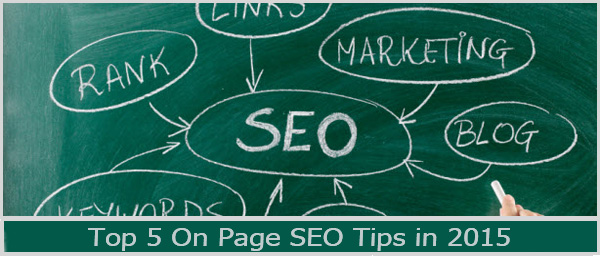In a previous blog post, we discussed how a marketing agency can boost your eCommerce business. Now, let’s explore the top five on-page SEO tips for 2015. Below, we describe some familiar on-page SEO techniques that remain crucial as we move into 2015.
1. Target Your Website Around One Keyword
Choosing the right keyword is a critical first step in SEO. Selecting incorrect keywords and stuffing keywords may damage your website’s ranking. It’s essential to optimize your site around a specific area or keyword. This keyword should appear in the page title, image ALT text, headings, and page content.
Incorrect keyword selection can affect your return on investment (ROI) and site traffic. While highly searched keywords often rank well, achieving a top position in search engines is challenging due to stiff competition. Therefore, it’s advisable to choose a moderately searched keyword to better rank your website.
2. Ensure URLs Are Short & Descriptive
A URL is one of the first elements a search engine crawls when ranking your site. Thus, URLs should be short and descriptive. If you don’t use targeted keywords in your URL, ensure you use words that effectively describe the page’s contents, as this is a significant ranking factor.
Keep your site’s URL concise by including the page’s topic and keyword. Place the most important words at the beginning of the URL. Also, avoid repeating words in the URLs of your pages to prevent complications during website crawling.
3. Optimize Page Titles
The page title appears in search results, so it’s vital to give this element considerable attention. An optimized page title not only attracts more traffic but also enhances your site’s ranking. Essentially, the title tag informs both the search engine and users about the page’s content.
Since search engines display only 50-60 characters of the page title, craft concise and compelling titles within this limit to encourage users to click on your page from search results. Incorporating keywords or topics related to the page content helps users understand what the page is about.
4. Foster Natural Links
Quality inbound links are a primary ranking factor. In the future, the significance of natural links is expected to increase. To enhance your website’s search engine presence through on-page optimization, it’s crucial to acquire many quality links from reputable websites.
Natural link building should be a priority, emerging organically from comprehensive SEO efforts.
5. Increase Site Speed
Site speed is another critical ranking factor, as users dislike waiting for slow-loading pages. To improve your website’s speed, consider the following:
- Reduce server response times
- Enable compression
- Enable browser caching
- Minify resources
- Optimize images
- Reduce the number of plugins
- Minimize redirects
Improving these aspects can significantly enhance user experience and improve your website’s search engine rankings.
By adhering to these on-page SEO tips, you can optimize your website effectively for 2015 and beyond.





